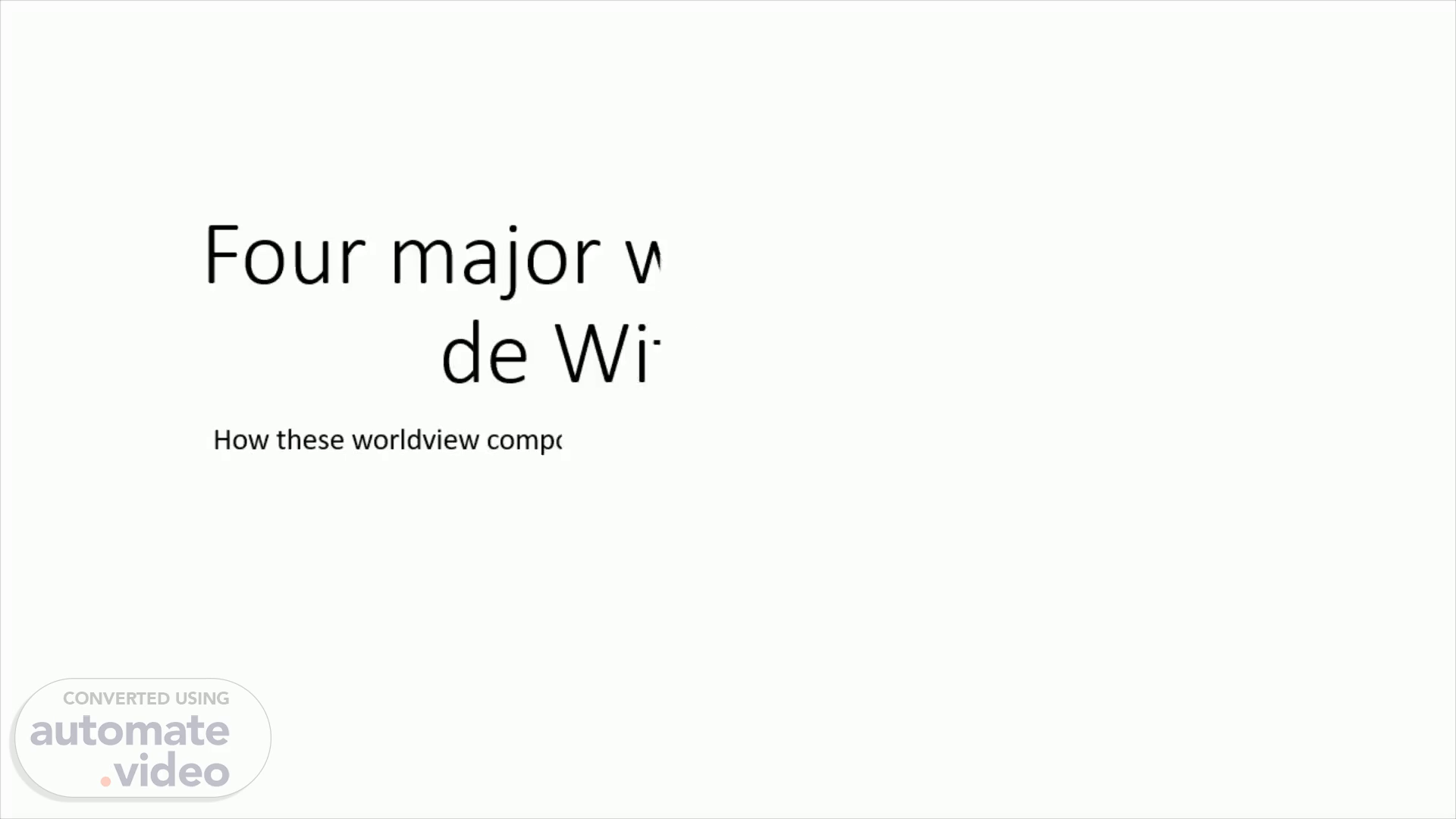
Page 1 (0s)
Four major worldviews from de Witt (2012).. How these worldview components view the societal issue of Gender and Education..
Page 2 (9s)
What are the Worldviews?. Worldviews are broad ideas that people and societies use to understand and interpret what is going on around them. These frameworks include a wide range of opinions, ideals, and presumptions regarding the nature of the real world, the meaning of life, and how things ought to be. Worldviews affect how we think, feel, and act, as well as how we approach politics, religion, ethics, and philosophy..
Page 3 (31s)
In his book "Worldviews: An Introduction to the History and Philosophy of Science," Richard DeWitt presents four major worldviews that have played significant roles in shaping human thought and understanding of the universe..
Page 4 (50s)
Christian Theism. View on Gender: Based on biblical teachings, Christian Theism frequently upholds traditional gender roles. A complementarian viewpoint of gender is held by many Christian denominations, according to both men and women have separate but beneficial roles within the home and society. View on Education: Christian theism traditionally places a high priority on education as a way for people to achieve and fulfil their true potential. Christian schools may place a strong emphasis on moral and religious instruction in addition to academic lessons. Impact on Gender and Education: Christian theism occasionally results in moderate opinions on education and gender, with a focus on moral principles and religious instruction in the classroom. Progressive reforms to gender curriculum might be resisted by this point of view..
Page 5 (1m 23s)
Deism (religion of nature). View on Gender: Due to deism's belief of a distant and non-intervening the Creator, gender roles and issues related to gender are often left up to personal preference and society standards. It doesn't dictate gender roles. View on Education: In Deism, education is frequently considered as a logical effort. Deists might promote reason and critical thinking in education without a significant religious component. Impact on Gender and Education: The impact of deism on gender as well as education would probably produce a largely logical and secular method, that allows freedom of choice and differences in roles related to gender and education..
Page 6 (1m 52s)
Naturalism. View on Gender: According to naturalism, gender is a result of both biological and evolutionary processes. It often supports the idea that gender roles and identities are socially constructed and can change over time. View on Education: Education based on a natural worldview usually has a strong factual and logical foundation. It might place a higher priority on educating about the environment and how humans act from a modern viewpoint. Impact on Gender and Education: Naturalism might result in an increasingly progressive and understanding view of gender and education. It would probably encourage efforts to undermine established gender norms and advance diversity and inclusivity..
Page 7 (2m 20s)
Nihilism (rejection of all religious and moral principles).
Page 8 (2m 52s)
In conclusion. Individuals among each worldview can have different opinions on these topics, and society's ideas on gender and education are shaped by a complicated interaction of aspects, including politics, society, and individual charges. It is crucial to keep this in mind..
Page 9 (3m 7s)
Referencing:. Dewitt, R. (2018). Worldviews : an introduction to the history and philosophy of science. Hoboken: Wiley. Media, M. (2021). Summary of C. S. Lewis’s Mere Christianity. Milkyway Media. Ventureyra, S.D.G. (2018). On the origin of consciousness : an exploration through the lens of the Christian conception of God and creation. Eugene, OR: Wipf and Stock..